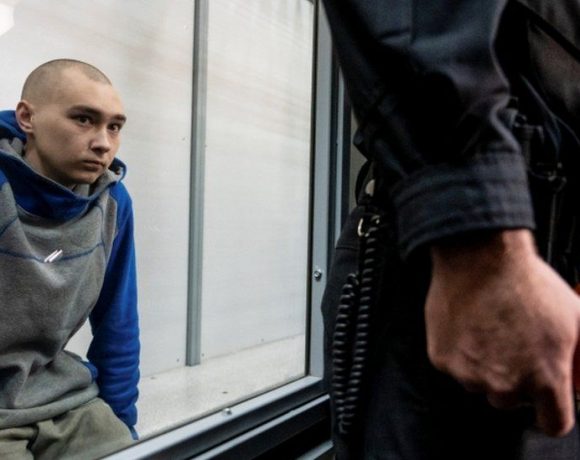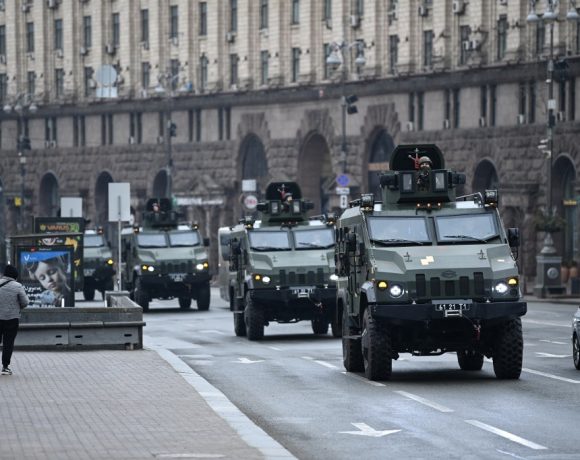
In the first war crimes trial in Ukraine since the conflict began, a 21-year-old Russian soldier admitted to killing an unarmed civilian.
A few days after the invasion began, Vadim Shishimarin admitted to shooting a 62-year-old man. He is facing life in prison. Handcuffed and flanked by heavily armed guards, the prisoner was led into the tiny Kyiv courtroom. He kept his head bowed and appeared nervous.
The widow of the man who was killed was only a few metres away.
As the soldier entered court, she wiped tears from her eyes and sat with her hands clasped as the prosecutor laid out his case, describing Kateryna’s husband, Oleksandr Shelipov, being shot in the head.
The judge inquired, “Do you accept your guilt?” Shishimarin replied, “Yes.”
“Totally?”
From behind the glass of his grey metal-and-glass cage, he replied quietly, “Yes.”
Shishimarin was commanding a unit in a tank division when his convoy was attacked, according to prosecutors. He and four other soldiers stole a car and encountered the 62-year-old on a bicycle near Chupakhivka, according to them. Shishimarin was ordered to kill the civilian, according to prosecutors, and he did so with a Kalashnikov assault rifle.
The Kremlin previously stated that it was unaware of the situation.
Shishimarin’s trial was postponed shortly after the civilian’s widow heard the Russian soldier admit to the murder for the first time. On Thursday, the high-profile hearing will resume in a larger courtroom. Before leaving the court for the day, Oleksandr’s widow spoke to the BBC about how she was coping.
“I pity him [Shishimarin],” she expressed her sorrow. “However, I cannot forgive him for such a crime.” Ukraine has identified more than 10,000 possible Russian war crimes so far.
Although Moscow has denied targeting civilians with its troops, investigators have been gathering evidence of possible war crimes to present to the International Criminal Court (ICC) in The Hague.
The International Criminal Court (ICC) is sending a team of 42 investigators, forensic experts, and support personnel to Ukraine. In the meantime, Ukraine has established a team to preserve evidence in order to facilitate future prosecutions.
Picture Courtesy: Google/Images are subject to copyright

